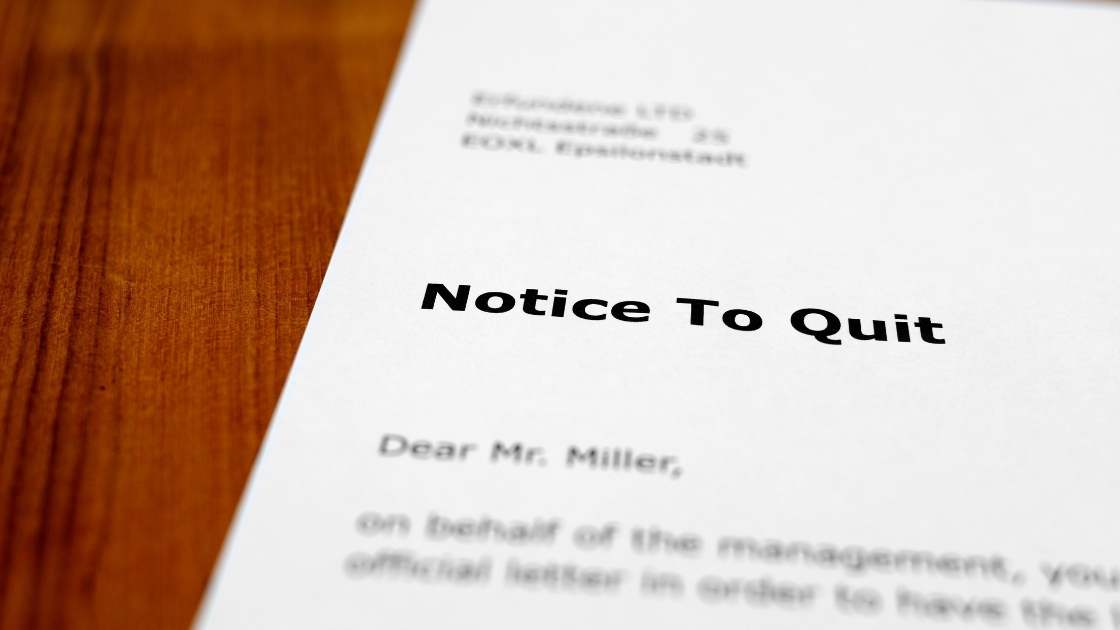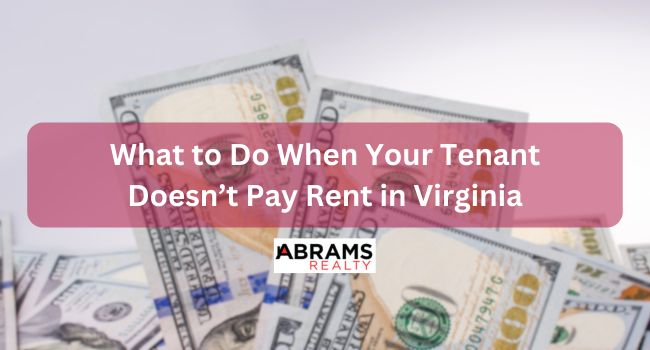Rent collection is one of the most critical aspects of property management. Unfortunately, not all tenants pay their rent on time, and landlords must be prepared to handle non-payment situations effectively.
If you own rental property in Virginia, understanding the steps to take when a tenant does not pay rent can help protect your investment and ensure a smooth resolution. In this article, we will walk you through the proper process for handling non-paying tenants, from issuing notices to eviction if necessary.
Understanding Lease Agreements and Rent Collection Policies
Before a tenant moves in, they sign a lease agreement that outlines their rent payment obligations. Most leases specify that rent is due on the 1st of the month and considered late if not received by the 5th.
Once the grace period has passed, landlords typically charge a late fee. Some companies charge a flat fee, while others, like Abrams Realty, charge 10% of the rent amount.
To stay on top of rent payments, landlords should track which tenants have not yet paid and send reminders. Sending a reminder before the 5th can help tenants avoid late fees and prompt them to make payments on time.
Issuing a Pay or Quit Notice
Virginia law allows landlords to issue a pay or quit notice if rent is not paid by the 5th. This legal document informs the tenant that they have five additional days to pay their rent in full, including any late fees. If the tenant fails to comply, the landlord can take legal action.
At Abrams Realty, we proactively check on tenants who haven’t paid by the 4th and promptly issue the necessary notices. By staying ahead of potential issues, landlords can reduce the chances of prolonged non-payment.

When to Start the Eviction Process
If rent is still unpaid by the 10th at 5:00 PM, the landlord can escalate the situation by sending the tenant’s file to an attorney to begin the eviction process. The timeline for eviction in Virginia can vary by city, but it generally takes 45 to 50 days to regain possession of the unit.
Once an eviction case is filed in court, tenants have until their court date to pay the full balance, including rent, late fees, and attorney fees. If they fail to pay by that date, the eviction moves forward.
The sheriff then schedules a lockout date, which typically occurs within 7 to 14 days after the court grants possession back to the landlord.
Handling Evicted Tenants’ Belongings
After an eviction, tenants often leave behind personal belongings such as furniture, appliances, or food in the refrigerator. In Virginia, tenants have 24 hours to retrieve their possessions. If they do not return within that time frame, landlords can proceed with removing the items.
At this stage, landlords should work with vendors for junk removal and deep cleaning to prepare the unit for a new tenant. Quick turnover is crucial for minimizing losses and restoring rental income.
How Landlord Rescue Services Can Help
Many landlords, especially self-managing property owners, struggle to handle non-paying tenants effectively.
That’s where Landlord Rescue Services come in. Abrams Realty offers a Landlord Rescue program for owners who need professional help with evictions and legal procedures.
For a one-time filing fee of $595, property managers step in to handle the eviction process and take over communication with the tenant.
Often, once tenants realize that professional property managers are involved, they are more likely to either pay their overdue rent or vacate the property. This service can save landlords time, stress, and potential legal complications.

Preventing Non-Payment Issues with Proper Tenant Screening
One of the best ways to prevent non-payment issues is through thorough tenant screening. Abrams Realty emphasizes the importance of checking residential history, contacting past landlords, and verifying employment and income before approving a tenant.
By ensuring tenants have a strong rental history, landlords can reduce the risk of late or missed payments.
Additionally, enforcing strict rent collection policies is essential. Some landlords make the mistake of giving tenants too many extensions or being too lenient. While flexibility can be helpful in some cases, consistently allowing late payments can set a precedent that leads to ongoing issues.
Final Thoughts
Dealing with non-paying tenants is a challenge, but having a structured process in place can make it easier. Issuing timely notices, enforcing lease terms, and working with professionals when needed can help landlords maintain control over their rental properties and protect their investments.
If you are a Virginia landlord dealing with a non-paying tenant, consider seeking help from professional property management companies that specialize in handling evictions and ensuring compliance with state laws. By taking the right steps early, you can minimize losses and keep your rental business running smoothly.


